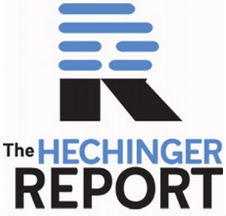Three New Orleans charter school principals gathered Thursday evening to discuss a just-released study that examined what school leaders do in response to competition — the foundation of the city’s school-choice model.
Nearly every school leader surveyed, 29 out of 30, acknowledged having competition, Assistant Professor of Education Policy Huriya Jabbar from the University of Texas found. And the ways to which they responded to it varied drastically — from billboard ads to attempting to hand-select students.
Twenty-five out of 30 school leaders reported engaging in some kind of marketing strategy, Jabbar said. And the second most common strategy was differentiation, such as specializing in a language or curriculum, or catering to a specific neighborhood.

But the study also found that one-third of the 30 surveyed school leaders had, in a variety of ways, attempted to select or exclude students, despite policies that require admission to all in most cases. Some held invitation-only events, and others required interviews of prospective students or their parents.
The survey took place during the 2012-13 school year, and the subsequent advent of the RSD-run centralized OneApp has changed the process for many schools, taking admissions decisions out of schools leaders’ control.
“They are facing a complicated set of incentives,” Jabbar said, introducing the study.
Indeed, charter schools are required to meet certain academic, organizational and financial objectives to remain open. However, the outcome of charters that do not meet the standards does not always result in the same ending.
The city has two charter-authorizing bodies — the state-run Recovery School District and the Orleans Parish School Board. The School Board only maintained control of the highest performing schools, when the state stepped in and seized control of more than 100 schools.
A majority of the charters overseen by the School Board operate their own enrollment systems and hold their own lotteries if more students apply than they have spots available. In the RSD, schools are required to participate in a centralized enrollment process called OneApp. This system allows parents to rank many schools, and an algorithm determines a student’s placement.
Jabbar and Education Research Alliance for New Orleans Director Doug Harris said the evidence of selecting students supports the need for a centralized enrollment system.
The three principals come from varying backgrounds and all had differing takes on competition and how it shapes the city. The school leaders in the study were anonymized, and while all three had read the results, only one acknowledged having spoken to Jabbar.
All leaders could agree on one thing — if a school is academically successful and highly sought by parents, it should be able to expand to serve more children. But when and how to expand was another discussion.
Patricia Perkins is the principal of Morris Jeff Community School, an RSD charter with a C letter grade and a popular choice on OneApp.
Perkins said based on reports released this week, the school was selected as a first or second choice by more parents than any year prior.
“We are in conversation right now about how we expand,” Perkins said.
Principal Michelle Douglas for A-rated Edward Hynes Charter School, a School Board charter that runs its own admission process, said she relies greatly on the school’s waiting list. She said the school recently passed on the opportunity to expand.
A waiting list is a cushion that C-rated Success Preparatory Academy doesn’t have, said Niloy Gangopadhyay, who leads the school. He acknowledged he was among the 30 surveyed for the study by recounting times he spoke with Jabbar.
“We are spending some money to put up billboards,” he said, in line with Jabbar’s findings.
His enrollment numbers for the upcoming school year have been short of his goal each spring after the first round of placements since the OneApp began, but the school has always managed to fill seats before the school year starts, he said.
“I think the best form of recruitment is retention,” he said.
Gangopadhyay said he was very surprised to read that some school leaders had sought to exclude some students.
He said he was upfront about what his school could offer — not band or a nice building, but a caring teacher you could reach by cell phone at night — when talking to prospective families.
Douglas thought being up front with program offerings was essential in helping parents make informed decisions.
During the discussion, a Benjamin Franklin High School board member in the audience, Susan Weeks, said she thought families were drawn to schools with strong academics — such as A-rated Franklin. The high school is a selective-admission Orleans Parish charter.
Gangopadhyay agreed and said schools such as Franklin could do more to reach communities that may not know their children could qualify for the selective school.
“We take them all in,” Weeks replied, of students who meet the admissions requirements.
“Cast a wider net. People can get into the school,” Gangopadhyay said to Weeks.
When asked whether Franklin would consider joining the centralized OneApp, Weeks said that was a question best left to the admissions director.
Both Weeks and Douglas said the OneApp’s timeline occurred too late in the year to fit with their schools’ admissions.
Douglas also felt the Orleans Parish lotteries were much more public than OneApp’s algorithmic placements which “happens so deep behind the scenes.”
Gangopadhyay said a quick solution to the city’s limited number of seats in highly rated charter schools would be to allow them to replicate and expand. Douglas and Perkins agreed, but neither offered specific details on how and when they may do so.
Perkins said she wanted to wait to expand until things were “just right” at the flagship campus.
“We are very, very sorry we can’t serve more kids yet, to tell you the truth,” she said.
